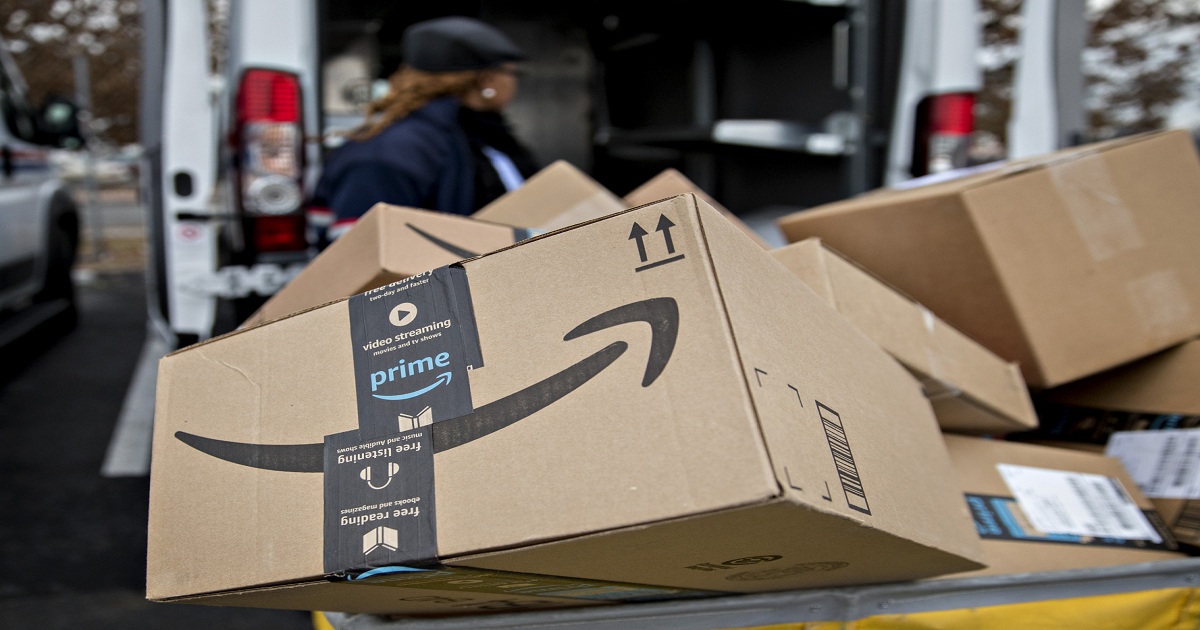
Warehousing and Distribution
Article | June 27, 2023
Risk management has been a problem for as long as supply chains have existed. Because of the interdependence of all its connections, even a minor issue in one isolated region has the potential to jeopardize a whole global supply chain. As a result, when major global trends and events occur, the potential for widespread supply chain disruption is enormous.
Global supply chain risks and market disruptions have reached an all-time high. The most notable of them is the COVID-19 pandemic. In a 2020 survey, the Institute for Supply Management discovered that 95% of companies faced operational issues due to the pandemic. As a result, business executives all around the globe believe that if they want to be more resilient and competitive in the present market, they need to modernize and make significant changes to their supply chain strategy.
Other recent factors that have had a significant impact on traditional supply chain practices include the fast pace of change in consumer behaviors and a pretty unstable trade and political environment.
In the last ten years, e-commerce spending has tripled, and internet shopping had increased by 149% in 2020 compared to the previous year. With the growth of e-commerce, there has been a rise in customer demand for faster delivery and more personalized shopping experiences. The Amazon Effect refers to the growing expectation for same-day delivery and its effect on businesses and logistical networks. To be resilient enough to react to these rising demands, supply chain managers have had to make fast and significant modifications to their logistics and warehousing networks, as well as discover new ways to collaborate with third-party fulfillment partners.
Even before the impact of COVID-19, American businesses were attempting to reduce their dependence on foreign manufacturers and suppliers. Foreign tariffs and trade policies had become more unpredictable by 2019, and businesses were seeking technological solutions to make the supply chains more self-sufficient and resilient. As a result, integrating digital transformation and Industry 4.0 technology into supply chain operations is quickly becoming a top concern for global business leaders.
How does Supply Chain Resilience Work?
A flexible contingency plan and the ability to react swiftly to operational disruptions are important characteristics of effective supply chain management. However, to be truly resilient, a supply chain must be able to predict and anticipate disruptions and, in many cases, avoid them entirely.
Strategic supply chain planning is an important step in achieving resilience because it synchronizes all supply chain components and increases visibility and agility. Supply and demand needs are better understood, and production is synchronized due to supply chain planning. This integrated, forward-thinking approach assists businesses in better anticipating problems, reducing the impact of supply chain disruptions, and improving overall operations.
When a business has the digital systems to analyze and make sense of Big Data, it significantly improves supply chain resilience. Artificial intelligence-enabled systems can curate disparate data sets from across the business and the globe. To discover trends and opportunities, news, competitor activity, sales reports, and even customer feedback can be examined together. The system's connected devices are constantly monitored, providing real-time insights about where and how processes can be automated and improved. For instance, AI, machine learning, and modern databases acquire and handle Big Data and analyze and learn from it in an almost infinite number of ways. This enables intelligent automation across the network and provides supply chain managers with the real-time insights they require to respond quickly to disruption and unexpected events.
Supply chain managers have traditionally sought to limit the number of partners and suppliers in their network to minimize operational and logistical complexity. This approach is based on the stability of the social, environmental, and political systems. Unexpected disruptions in one region can slow or even stop network operations across the board. Supply chain resilience technologies, such as blockchain, sensors, and advanced analytics, enable supply chain managers to monitor complex partnerships and supplier contracts even in the most remote parts of their network.
Profitability in the supply chain has always been dependent on minimizing excess and keeping inventories as lean as possible. Capacity and inventory buffers are expensive, and supply chain managers have often bet against disruptions to keep prices low. When the pandemic struck, many businesses discovered the real cost of the gamble. Supply chain operations can involve on-demand manufacturing, virtual inventories, and predictive demand forecasting using digital supply chain technologies to remain resilient, even in times of unexpected disruption.
Benefits of a Resilient Supply Chain
Finding a successful balance between supply and demand is a significant issue for any supply chain manager in an increasingly competitive market. Many businesses that have cut costs on diversification, supply chain technology, and other resilience measures have lately discovered the true cost of those choices. However, when businesses engage in diversification, supply chain technologies, and other resilience measures, they can achieve a variety of business benefits, including:
More efficient operations: Better resilience often results in less risk and a greater capacity to invest in innovation and growth. For example, according to a 2020 global business analysis conducted by Bain and Company, businesses that prioritized their investment in supply chain resilience had up to 60% quicker product development cycles and were able to increase production capacity by up to 25%.
Enhanced productivity: Resilient supply chain solutions lead to the overall system increased productivity. According to a McKinsey 2020 survey, supply chain leaders from across the world report increased productivity due to resilient supply chain systems, and 93% of those surveyed plan to prioritize resilient supply chain strategies for investment in the next year.
Risk reduction: Supply chain activities are often the most vulnerable to risk and loss in many businesses. Supply chains, by nature, are geographically distributed and functionally complex. As a result, supply chains are particularly vulnerable to risk. Resilient supply chain technologies minimize risk by providing insight into all network operations and enabling companies to improve and adjust their processes and logistics in real-time.
Technologies for an Agile Supply Chain
Digital transformation and modern supply chain technology provide businesses with the resilience and competitive advantage they need to react swiftly to disruptions and opportunities.
Artificial intelligence (AI): AI-powered supply chain systems can offer deep procedural and operational insights by gathering and analyzing data from many sources. Predictive analytics and Big Data analysis can assist in predicting risk and demand and recommending measures and reactions in the company.
Machine learning: Machine learning enables the discovery of patterns in supply chain data and the identification of these influential factors - all while constantly learning. This enables supply chain managers to react fast with the finest workflows and operational strategies available.
Industrial Internet of Things (IIoT): The IIoT network in a supply chain comprises connected devices and objects with sensors and unique IDs that allow them to transmit and receive digital data. They collect information and communicate with the central system. AI can analyze and understand this data to enable quick decisions and intelligent automation of supply chain operations and procedures.
Additive (3D) printing: Smart factories can quickly reprogram 3D printers to produce specific products on-demand without disrupting regular business operations in the long run. The accessibility of potential virtual inventories enables supply chains to defend themselves against disruption.
Robots and autonomous things: Robots and drones, which are intelligently automated for speed, efficiency, and accuracy, can adapt their operations on the go to meet quickly changing requirements. They also reduce the risk of harm by eliminating overly repetitive or dangerous tasks from human workers.
Modern databases: The resilient supply chain solutions rely on Big Data, advanced analytics, and real-time insights from modern databases. Supply chain technology can be improved to operate faster and most resilient when equipped with a modern ERP system and an in-memory database.
Resilience means more than just surviving a disruption in operations. A fully resilient supply chain and businesses survive hardship and use it to innovate and improve their business. Building a resilient supply chain is very important in this modern era because disruptions like a pandemic, wars, climate change, etc., are occurring a lot these days. A resilient supply chain helps businesses to survive and thrive even during tough times. To read more about ways to boost supply chain performance, click here.
FAQ
What is supply chain resilience?
Supply chain resilience refers to the supply chain's capacity to be prepared for unexpected risk events, react and recover swiftly to potential disruptions, and grow by shifting to a new, more desirable state in order to improve customer service, market share, and financial performance.
How is supply chain resilience measured?
A supply chain's resilience index is calculated by aggregating its company's resilience index. Given that supply chain company's performance influences overall supply chain performance, supply chain resilience should be measured using the companies' resilience index.
{
"@context": "https://schema.org",
"@type": "FAQPage",
"mainEntity": [{
"@type": "Question",
"name": "What is supply chain resilience?",
"acceptedAnswer": {
"@type": "Answer",
"text": "Supply chain resilience refers to the supply chain's capacity to be prepared for unexpected risk events, react and recover swiftly to potential disruptions, and grow by shifting to a new, more desirable state in order to improve customer service, market share, and financial performance."
}
},{
"@type": "Question",
"name": "How is supply chain resilience measured?",
"acceptedAnswer": {
"@type": "Answer",
"text": "A supply chain's resilience index is calculated by aggregating its company's resilience index. Given that supply chain company's performance influences overall supply chain performance, supply chain resilience should be measured using the companies' resilience index."
}
}]
}
Read More

Transportation
Article | April 26, 2023
The rapid growth of e-commerce continues to create new challenges for retailers as they plan distribution strategies. One of those challenges is managing the high volume of returns. One in three shoppers returns items, and more than half read a company’s returns policy before making a purchase. Retailers lose $50 billion annually due to inefficiencies in processing returns, and distribution centers handling returns need 15% to 20% more space than a traditional facility.
Read More

Supply Chain
Article | August 17, 2023
Innovations such as AI and automation have been tipped to kickstart the Fourth Revolution. While the technology is being widely adopted, it is constantly evolving. Therefore, there is uncertainty surrounding its overall impact, particularly on professional roles within the supply chain. Some fear that the technology will replace its human counterparts, while other experts suggest it will work in unison with humans, supporting them to focus on higher value opportunities. Amidst all of this uncertainty one thing is for certain: AI and automation will change how we operate.
Read More

Management
Article | June 21, 2023
Enhance operational efficiency by implementing industry-approved methods for multi-channel inventory management. Taking a holistic approach to control inventory helps multiple sales channels grow.
Multi-channel inventory management is a crucial aspect of the supply chain process that ensures the goods are available to customers through different sales channels. However, with growing penetration of ecommerce technologies and the increasing complexity of supply chain networks, managing inventory across multiple channels has become daunting for businesses. The ability to accurately track inventory levels, ensure stock availability across channels, and optimize fulfillment processes has become critical to achieve success in today's competitive business landscape.
Managing inventory across multiple channels require real-time visibility and tracking of inventory levels which further streamlines the complex process. Inaccurate inventory data can lead to stockouts, overstocking, and lost sales, negatively impacting the business's bottom line. To combat these challenges, businesses must implement a robust multi-channel inventory management system to track inventory across all channels, synchronize stock levels, and automate order fulfillment processes.
An inventory management system can offer businesses a consolidated view of inventory at various locations, such as warehouses, stores, and even online channels. An organized approach is crucial while managing multi-channel inventory or keeping track of moving inventory. Implementing an effective inventory management procedure, managing multi-channel inventory becomes more streamlined and simplified, as well as provides a comprehensive overview.
In addition, as businesses continue to expand their sales channels, multi-channel inventory management has become a vital component of supply chain management. By adopting best practices in multi-channel inventory management, businesses can ensure on-demand access, accurate inventory data, and seamless order fulfilment processes. Additionally, implementing the right procedures will allow organizations to observe an increase in customer satisfaction and experience significant business growth.
The article takes an in-depth look at key benefits, potential challenges, procedural considerations, and the significance of multi-channel inventory management. It delves into the impact of this approach on supply chain performance while providing valuable insights into best practices.
1. Centralize Inventory Management Process
Centralizing multi-channel inventory helps manage supply chain businesses across various channels and locations. Businesses can gain better visibility and control over their inventory processes by consolidating inventory data. However, centralizing inventory management is not without its challenges. One of the major obstacles faced by organizations is ensuring the accuracy and consistency of data across different locations and channels.
Another barrier is integrating various inventory management tools and technologies into a single system. Despite these challenges, centralizing inventory management offers significant benefits, including improved efficiency and reduced costs. In addition, businesses can leverage cloud-based inventory management software and standard operating procedures to centralize and optimize inventory management processes effectively.
2. Adopt Lean Inventory Management Approach
The lean inventory management approach is adequate for managing multi-channel inventory in supply chain businesses. This approach involves reducing excess inventory and only stocking items in demand. While implementation of the approach is complex due to the need for accurate demand forecasting and inventory tracking, it offers multiple advantages, such as reduced inventory carrying costs, improved cash flow, and increased customer satisfaction. To implement a lean inventory management approach in the supply chain business, follow these steps:
Conduct inventory analysis
Categorize items based on value and demand
Implement just-in-time (JIT) replenishment
Leverage forecasting tools
Establish cycle counting and monitoring procedures
Strive for continuous process improvement
This approach helps businesses achieve better inventory accuracy, increase operational agility, and meet customer demands across multiple channels.
3. Utilize ABC Inventory Analysis
ABC inventory analysis is a widely used best practice for multi-channel inventory management in the supply chain. This method categorizes inventory based on its level of importance to the business. ABC inventory analysis categorizes goods into A, B, and C categories based on their impact on overall inventory cost. Category A consists of the most valuable products, category B includes items that fall in between, and category C covers small transactions that are vital for overall profit but have less individual impact. Supply chain businesses can prioritize their resources and make informed decisions by focusing on high-value inventory.
However, implementing this method can be challenging, especially when dealing with extensive inventory data. To successfully address challenges associated with implementing ABC inventory analysis for multi-channel inventory management, businesses must focus on accurate data classification, utilization of advanced analytics tools, and fostering effective team collaboration.
4. Optimize Order Management Process
Optimizing order management involves automating and streamlining order fulfilment for efficient and accurate processing across sales channels. The process ensures optimal inventory control, minimizes fulfilment time, and enhances customer satisfaction, providing a competitive advantage. Aligning inventory levels with actual demand prevents overstocking and reduces holding costs. Additionally, businesses can efficiently allocate inventory from various sources to fulfil orders, reducing the need for excess storage and transportation. The optimization is achieved by adopting automation, system integration, and data analysis. In addition, comprehensive multi-channel order management system offers multiple benefits, including native e-commerce integrations, flexible order fulfilment options, multi-location inventory management, integrated POS capabilities, data-driven inventory planning, and workflow automation, among others.
5. Integrate Sales Channels
Integrating sales channels provides businesses with a unified view of inventory, sales, and customer data, enabling informed decision-making based on real-time information. It helps accurately track products across channels as well as adjust inventory levels based on individual selling rates. The process involves synchronizing channels through a centralized system, ensuring seamless data flow and consistent product information. It includes setting up API integrations, mapping inventory, and conducting thorough testing for smooth order processing. To implement the integration, businesses must utilize technology solutions like inventory management software and enterprise resource planning (ERP) systems. Additionally, it establishes clear communication channels among teams managing different sales channels.
6. Set Cross-Channel Metrics
Cross-channel metrics measure and analyze each sales channel's performance, including online & offline sales, and identify areas for improvement. To set cross-channel metrics for multi-channel inventory, businesses must identify relevant metrics, establish benchmarks, and regularly monitor and evaluate performance. Implementing cross-channel metrics allows businesses to make data-driven decisions based on actual performance rather than relying on assumptions or incomplete data. In addition, supply chain businesses can leverage technology solutions, such as cloud-based inventory management software, to manage and consolidate their data sources effectively. Enforcing cross-channel metrics in multi-channel inventory management helps overcome several challenges, such as lack of visibility across sales channels, difficulty in identifying slow-moving products, and inefficiencies in resource allocation.
7. Automate Supply chain
Automating the supply chain and implementing advanced software systems helps businesses to optimize supply chain processes. Automation reduces manual errors, enhances efficiency, and improves overall productivity. It enables real-time inventory tracking, seamless order processing, and accurate demand forecasting. Businesses can easily overcome manual inefficiencies, bottlenecks, and data discrepancies by automating the supply chain process. The process includes integration of automation tools like inventory management software, order management systems, and warehouse management systems. The systems integrate with sales channels, suppliers, and logistics partners to automate order processing, inventory tracking, and shipment management tasks. Ultimately, businesses achieve better inventory control, faster order fulfilment, and increased customer satisfaction by automating supply chain operations.
Final Thoughts
As the supply chain market evolves, businesses must adopt innovative approaches for multi-channel inventory management. Incorporating additional sales channels into conventional brick-and-mortar operations presents a valuable opportunity to expand customer reach, boost sales, and enhance the overall customer experience. To effectively implement multi-channel sales and inventory management within a retail organization, acquiring a robust retail management system capable of efficiently monitoring inventory levels and facilitating business growth becomes essential. The adoption of an effective system can assist businesses to ensure seamless inventory control and propel sustained success in the competitive market.
Read More